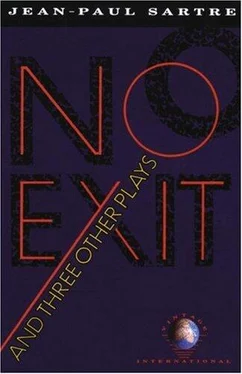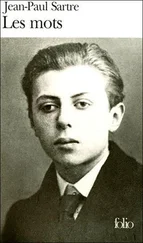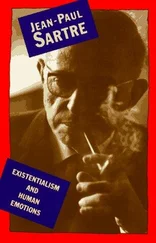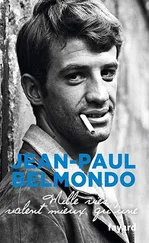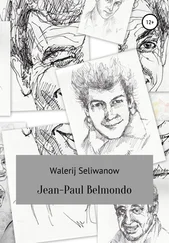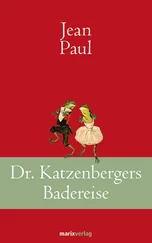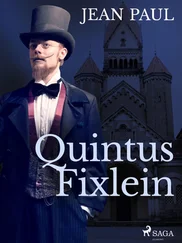
Although many nineteenth century philosophers developed the concepts of existentialism, it was the French writer Jean Paul Sartre who popularized it. His one act play, Huis Clos or No Exit, first produced in Paris in May, 1944, is the clearest example and metaphor for this philosophy. There are only four characters: the VALET, GARCIN, ESTELLE, and INEZ and the entire play takes place in a drawing room, Second Empire style, with a massive bronze ornament on the mantelpiece. However the piece contains essential germs of existentialist thought such as "Hell is other people."
As you read the play, put yourself in that drawing room with two people you hate most in the world.
GARCIN (enters, accompanied by the VALET, and glances around him): So here we are?
VALET: Yes, Mr. Garcin.
GARCIN: And this is what it looks like?
VALET: Yes.
GARCIN: Second Empire furniture, I observe… Well, well, I dare say one gets used to it in time.
VALET: Some do, some don't.
GARCIN: Are all the rooms like this one?
VALET: How could they be? We cater for all sorts: Chinamen and Indians, for instance. What use would they have for a Second Empire chair?
GARCIN: And what use do you suppose I have for one? Do you know who I was?…Oh, well, it's no great matter. And, to tell the truth, I had quite a habit of living among furniture that I didn't relish, and in false positions. I'd even come to like it. A false position in a Louis-Philippe dining room- you know the style?-well, that had its points, you know. Bogus in bogus, so to speak.
VALET: And you'll find that living in a Second Empire drawing-room has its points.
GARCIN: Really?…Yes, yes, I dare say…Still I certainly didn't expect- this! You know what they tell us down there?
VALET: What about?
GARCIN: About…this- er-residence.
VALET: Really, sir, how could you believe such cock-and-bull stories? Told by people who'd never set foot here. For, of course, if they had-
GARCIN: Quite so. But I say, where are the instruments of torture?
VALET: The what?
GARCIN: The racks and red-hot pincers and all the other paraphernalia?
Think about the place you have chosen as your hell. Does it look ordinary and bourgeois, like Sartre's drawing room, or is it equipped with literal instruments of torture like Dante's Inferno? Can the mind be in hell in a beautiful place? Is there a way to find peace in a hellish physical environment? Enter Sartre's space more fully and imagine how it would feel to live there endlessly, night and day:
VALET: Ah, you must have your little joke, sir.
GARCIN: My little joke? Oh, I see. No, I wasn't joking. No mirrors, I notice. No windows. Only to be expected. And nothing breakable. But damn it all, they might have left me my toothbrush!
VALET: That's good! So you haven't yet got over your-what-do-you-call-it?-sense of human dignity? Excuse my smiling.
GARCIN: I'll ask you to be more polite. I quite realize the position I'm in, but I won't tolerate…
VALET: Sorry, sir. No offense meant. But all our guests aske me the same questions. Silly questions, if you'll pardon my saying so. Where's the torture-chamber? That's the first thing they ask, all of them. They don't bother their heads about the bathroom requisites, that I can assure you. But after a bit, when they've got their nerve back, they start in about their toothbrushes and what-not. Good heavens, Mr. Garcin, can't you use your brains? What, I ask you, would be the point of brushing your teeth?
GARCIN: Yes, of course you're right. And why shouild one want to see oneself in a looking- glass? But that bronze contraption on the mantelpiece, that's another story. I suppose there will be times when I stare my eyes out at it. Stare my eyes out-see what I mean?…All right, let's put our cards on the table. I assure you I'm quite conscious of my position. Shall I tell you what it feels like? A man's drowning, choking, sinking by inches, till only his eyes are just above water. And what does he see? A bronze atrocity by- what's the fellow's name?-Barbedienne. A collector's piece. As in a nightmare. That's their idea, isn't it?…No, I suppose you're under orders not to answer questions; and I won't insist. But don't forget, my man, I've a good notion of what's coming to me, so don't you boast you've caught me off my guard. I'm facing the situation, facing it. So that's that; no toothbrush. And no bed, either. One never sleeps, I take it?
VALET: That's so.
GARCIN: Just as I expected. WHY should one sleep? A sort of drowsiness steals on you, tickles you behind the ears, and you feel your eyes closing- but why sleep? You lie down on the sofa and- in a flash, sleep flies away. Miles and miles away. So you rub your eyes, get up, and it starts all over again.
VALET: Romantic, that's what you are.
GARCIN: Will you keep quiet, please!…I won't make a scene, I shan't be sorry for myself, I'll face the situation, as I said just now. Face it fairly and squarely. I won't have it springing at me from behind, before I've time to size it up. And you call that being "romantic!" So it comes to this; one doesn't need rest. Why bother about sleep if one isn't sleepy? That stands to reason, doesn't it? Wait a minute, there's a snag somewhere; something disagreeable. Why, now, should it be disagreeable?…Ah, I see; it's life without a break.
Could hell be described as too much of anything without a break? Are variety, moderation and balance instruments we use to keep us from boiling in any inferno of excess,' whether it be cheesecake or ravenous sex?
VALET: What are you talking about?
GARCIN: Your eyelids. We move ours up and down. Blinking, we call it. It's like a small black shutter that clicks down and makes a break. Everything goes black; one's eyes are moistened. You can't imagine how restful, refreshing, it is. Four thousand little rests per hour. Four thousand little respites-just think!…So that's the idea. I'm to live without eyelids. Don't act the fool, you know what I mean. No eyelids, no sleep; it follows, doesn't it? I shall never sleep again. But then-how shall I endure my own company? Try to understand. You see, I'm fond of teasing, it's a second nature with me- and I'm used to teasing myself. Plaguing myself, if you prefer; I don't tease nicely. But I can't go on doing that without a break. Down there I had my nights. I slept. I always had good nights. By way of compensation, I suppose. And happy little dreams. There was a green field. Just an ordinary field. I used to stroll in it…Is it daytime now?
VALET: Can't you see? The lights are on.
GARCIN: Ah, yes, I've got it. It's your daytime. And outside?
VALET: Outside?
GARCIN: Damn it, you know what I mean. Beyond that wall.
VALET: There's a passage.
GARCIN: And at the end of the passage?
VALET: There's more rooms, more passages, and stairs.
GARCIN: And what lies beyond them?
VALET: That's all.
GARCIN: But surely you have a day off sometimes. Where do you go?
VALET: To my uncle's place. He's the head valet here. He has a room on the third floor.
GARCIN:I should have guessed as much. Where's the light-switch?
VALET:There isn't any.
GARCIN:What? Can't one turn off the light?
VALET:Oh, the management can cut off the current if they want to. But I can't remember their having done so on this floor. We have all the electricity we want.
GARCIN:So one has to live with one's eyes open all the time?
VALET: To live, did you say?
GARCIN: Don't let's quibble over words. With one's eyes open. Forever. Always broad daylight in my eyes- and in my head. And suppose I took that contraption on the mantelpiece and dropped it on the lamp- wouldn't it go out?
Читать дальше
